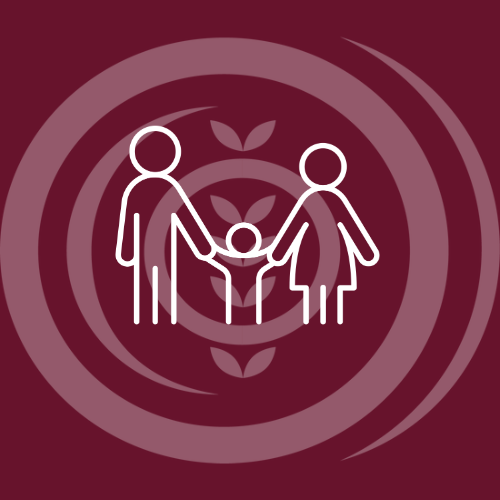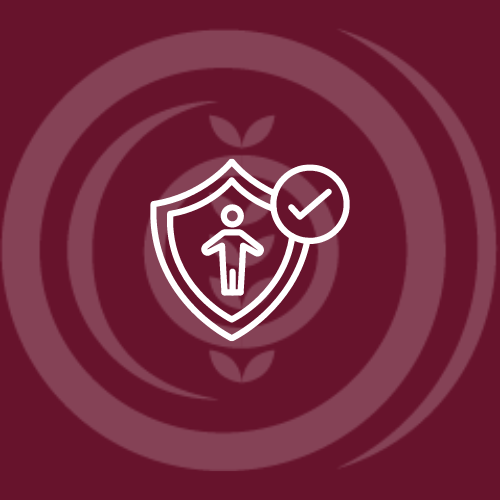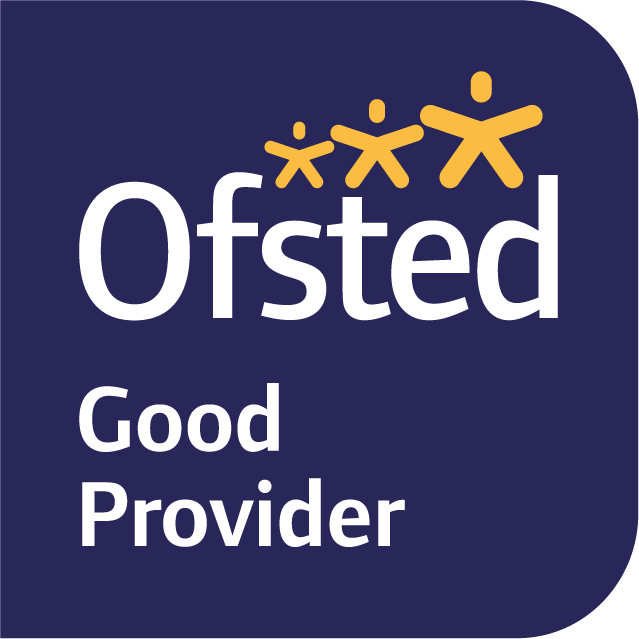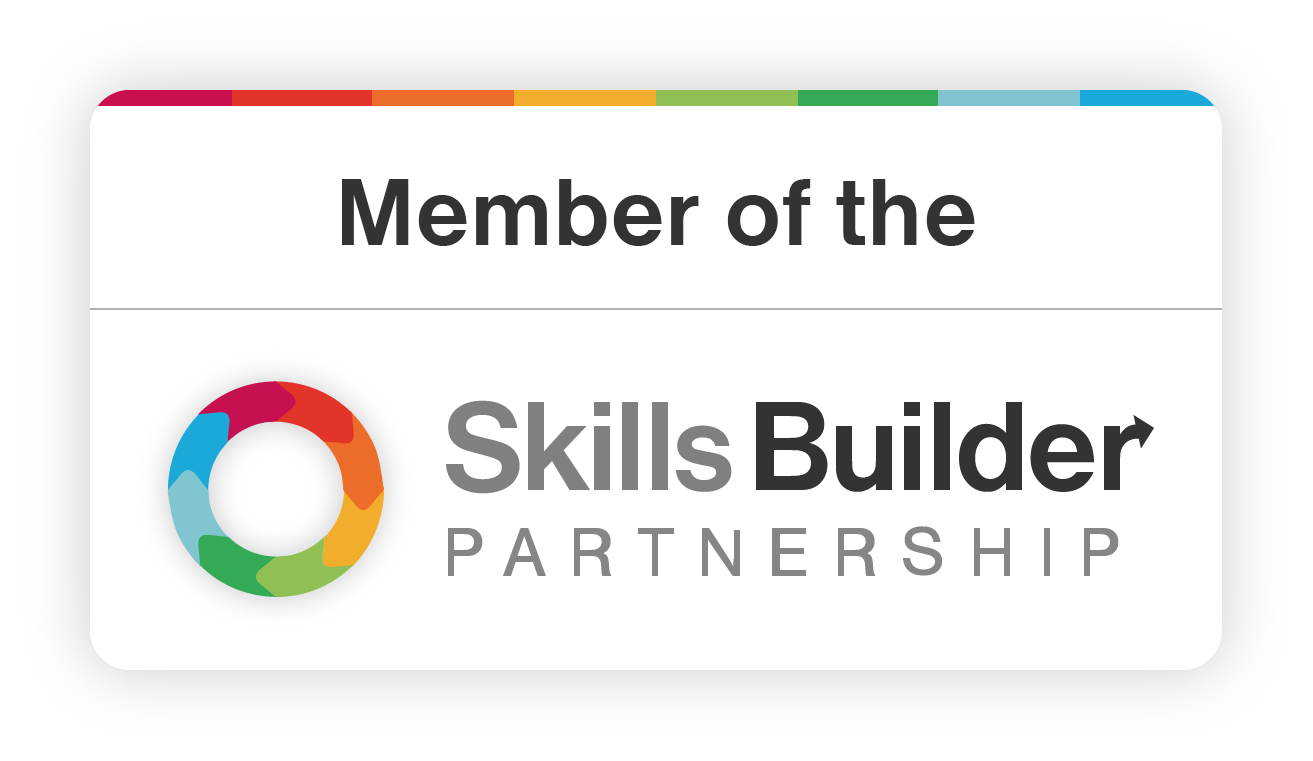Safeguarding and Wellbeing
The safeguarding and wellbeing section of the website is currently under construction to ensure enhanced features and comprehensive resources for our users' safety and welfare. We appreciate your patience and look forward to presenting an improved experience soon.
Safeguarding at Thornhill
Safeguarding and promoting the welfare of children is defined as:
- Protecting children from maltreatment;
- Preventing impairment of children’s health or development;
- Ensuring that children grow up in circumstances consistent with the provision of safe and effective care;
- Taking action to enable all children to have the best outcomes.
Everyone who comes into contact with children and their families has a role to play in safeguarding children. School is particularly important as they are in a position to identify concerns early and provide help for children, to prevent concerns from escalating. Schools and their staff form part of the wider safeguarding system for children. This system is described in statutory guidance: Keeping Children Safe in Education 2023 and Working Together to Safeguard Children 2024
Schools and colleges work with social care, the police, health services, and other services to promote the welfare of children and protect them from harm.
The Thornhill Academy Safeguarding team are:
- Overall Safeguarding – Mrs S Hamilton
- Designated Safeguarding Lead – Miss L Coates
- Deputy Designated Safeguarding Lead - Miss L Gray
- Deputy Designated Safeguarding Lead - Mr L Clark
If you have a concern or want to talk to one of the safeguarding team this can be done in the following way :
- Using the Sharp Reporting tool on the school website https://shorturl.at/wDL67
- Contacting one of the safeguarding team via telephone Thornhill safeguarding mobile number 07809702469
- Contacting the Head of safeguarding or Designated Deputy via email – Miss L Coates Leigh.coates@consiliumat.com, Ms L Gray lorna.gray@consiliumat.com
- Students can use the QR code on the student support posters throughout the school.
- Contacting Consilium Academy safeguarding team safeguarding@consiliumat.com
- Using the relevant contact forms below
These methods of contact will all be available to students, parents, the community and professionals during term time school opening hours 08:00 to 16:00. Although contact outside these times is possible, they will not be routinely monitored. Any requests or information shared will be dealt with during term time hours.
If you have a concern outside these times, please contact Together for Children's Social Care on 0191 560 5560
In an emergency when there is immediate risk of harm to anyone, 999 should be used to gain support.
Further Information around specific areas of Safeguarding and Child protection is available below:
E-Safety
The Internet and other digital technologies are powerful tools which open up new opportunities for everyone. Electronic communication helps teachers and students learn from each other. The use of these exciting and innovative tools in the academy and at home has been shown to raise educational standards and promote student achievement.
Children and young people should have an entitlement to safe Internet access at all times and, as such, Thornhill Academy’s e-Safety strategy (in which the e-safety policy plays a pivotal role) will help ensure the safe and appropriate use of the Internet and digital technologies.
The use of new technologies can put young people at risk within and outside the academy. Some dangers they may face include:
- Access to illegal, harmful, or inappropriate images or other content.
- Unauthorised access to / loss of / sharing of personal information.
- The risk of being subject to grooming by those with whom they make contact on the Internet.
- The sharing / distribution of personal images without an individual’s consent or knowledge.
- Inappropriate communication/contact with others, including strangers.
- Cyber-bullying.
- Access to unsuitable video / Internet games.
- Illegal downloading of music or video files.
- The potential for excessive use may impact the social and emotional development and learning of the young person.
We have invested in Impero Education Pro e-safety & Internet safety software to ensure our school network is as safe as can be for our children. Click here to read about the features of this software and how it plays a key role in keeping our children safe.
Many of these risks reflect situations in the offline world, and it is essential that Thornhill Academy and its community work together to eliminate as much risk as is possible.
In working towards this, Thornhill Academy has invested in the development of a comprehensive monitoring strategy that allows the school to proactively work with our students and their parents/carers to reduce the risks and dangers described above.
Advice to keep safe online
The internet and social media sites can be very useful tools for communicating with others we may not see very often or research on topics for school or social purposes. However, it is also a tool that can be misused in a number of ways and it is important we protect ourselves from any dangers whilst using internet sites.
- NEVER post your address or phone numbers online.
- NEVER meet someone who you have only ever spoken to online.
- NEVER share details of your school.
- NEVER post pictures of you in your school uniform.
- Use only age-appropriate sites.
- If you see something online that makes you feel uncomfortable, unsafe or worried: leave the website, and tell a trusted adult immediately.
- Keep your usernames and passwords safe at all times.
- Think about what you post and how it could be misinterpreted.
- Think carefully before posting pictures or videos of yourself. Once you’ve put a picture of yourself online, people can see it and download it, it’s not just yours any more.
- NEVER post or send provocative pictures of yourself or others.
- Respecting other people’s views, even if you don’t agree with someone else’s views, doesn’t mean you need to be rude.
- ALWAYS make sure you have closed profiles and only add people you know.
- Remember whatever you post will stay on the web forever!
- Be aware that people online are not always who they say they are. If you are unsure, tell someone!
Advice for staying safe on your mobile
You also need to be careful and considerate when using your mobile devices. Below are some tips for being safe on your phone. Remember mobile devices will be confiscated for the week if staff see them being used in school.
- NEVER reply to any nasty messages you receive – tell an adult about them instead.
- NEVER reply to a text from someone you don’t know.
- Keep the messages you have been sent, so you can show them to a trusted adult and make a note of the time and date of the messages or calls you receive.
- NEVER answer calls from withheld numbers or numbers you don’t recognise, let them go to voicemail.
- NEVER give your mobile number to someone you don’t know.
- NEVER send pictures to someone you don’t know and be very careful about sending pictures to anyone on your phone.
PREVENT
Prevent is part of the government’s strategy to address terrorism. The main aim of Prevent is to stop people from becoming terrorists or supporting terrorism. Prevent focusses on all forms of terrorist threats. The Government’s Prevent strategy can be found at the following address: www.homeoffice.gov.uk
How can you help?
It is important that we all work together, so we can protect our communities. There are many ways you can help. For example, get in touch with your local neighbourhood or Prevent team for advice and support if you are worried about someone you know who you believe may be vulnerable to radicalisation. Alternatively, you can speak to your local officers about helping run community events to bring people from different communities together.
Resources for Parents:
Child Sexual and Criminal Exploration
What is Child Criminal Exploration?
Child Criminal Exploitation (CCE) is a type of child abuse. It occurs where an individual or group takes advantage of an imbalance of power to coerce, control, manipulate or deceive a child or young person under the age of 18 into any criminal activity.
•In exchange for something the victim needs or wants
•For the financial or other advantage of the perpetrator or facilitator
•Through violence or the threat of violence.
Child Criminal Exploitation does not always involve physical contact; it can also occur through the use of technology. Criminal exploitation often happens alongside sexual or other forms of exploitation.
Criminal exploitation takes many forms, the most commonly known relating to the supply and movement of drugs, often referred to as County Lines, offences in relation to guns and other weapons, money laundering, violent offences and in some cases Cuckooing where criminals forcibly take over control of a person’s home.
Child Criminal exploitation is broader than just county lines and includes for instance children forced to work on cannabis farms, to commit theft, shoplift or pickpocket, or to threaten other young people.
Signs a child maybe criminally exploited
– Regularly absent (often unexplained) from and struggling at school
– Going missing from home, staying out late and travelling for unexplained reasons
– In a relationship or hanging out with someone older than them
– Being isolated or withdrawn
– Having unexplained amounts of money and buying new things
– Wearing clothes or accessories in gang colours or getting tattoos
– Using new slang words
– Being angry, aggressive or violent
– Spending more time on social media and being secretive about time online
– Increase number of calls or sending more texts, possibly on a new phone or phones
– Self-harming and feeling emotionally unwell
– Substance misuse and drinking alcohol
– Committing low level crimes like shop lifting or vandalism
– Unexplained injuries and refusing to seek medical help
– Carrying weapons or having a dangerous breed of dog
FGM and Breast Ironing
Female Genital Mutilation (FGM) is defined by the World Health Organisation as:
“All procedures that involve partial or total removal of the external female genitalia, or other injury to the female genital organs for non-medical reasons”.
FGM is considered child abuse in the UK and is a grave violation of the human rights of girls and women.
It has intolerable long-term physical and emotional consequences for the survivors and has been illegal in the UK for over 30 years. It is estimated that 137,000 girls and women in the UK are affected by this practice, but this is likely to be an underestimation.
Breast Ironing
Breast ironing, also known as breast flattening, is the pounding and massaging of a pubescent girl’s breasts using hard or heated objects to try to stop them developing, or to make them disappear entirely.
Breast ironing is typically carried out by the girl’s mother with the belief that she is:
- Protecting her daughter from sexual harassment and / or rape;
- Preventing the risk of early pregnancy, which would tarnish the family name;
- Preventing her daughter from being forced into marriage, so she will have the opportunity to continue with her education.
Self-Harm and Suicidal Ideation
What is self-harm?
Self-harm is where someone hurts themselves as a way of dealing with very difficult feelings, painful memories or overwhelming situations and experiences. Some people have described self-harm as a way to:
- Express something that is hard to put into words
- Turn invisible thoughts or feelings into something visible
- Changing emotional pain into physical pain
- Reduce overwhelming emotional feelings or thoughts
- Have a sense of being in control
- Escape traumatic memories
- Have something in life that they can rely on
- Punish themselves for their feelings and experiences
- Stop feeling numb, disconnected or dissociated (see dissocation and dissociative disorders)
- Create a reason to physically care for themselves
- Express suicidal feelings and thoughts without taking their own life
Gaining help and support
If you have concerns about yourselves, others or your child, you can contact a member of the safeguarding team to discuss and access support.
Alternatively, you can find more help and support via the MIND website.
What is Suicidal Ideation?
Suicidal ideation, or suicidal thoughts, is the thought process of having ideas, or ruminations about the possibility of completing suicide.[1] It is not a diagnosis but is a symptom of some mental disorders, use of certain psychoactive drugs, and can also occur in response to adverse life events without the presence of a mental disorder.[2]
If you, or anyone you know, is suffering from issues to do with their emotional wellbeing or mental health, please have a look at these sources of help, support and guidance. Further helpful support documents are available below.
Washington MIND - Mental health and Wellbeing for adults and under 18s: https://www.washingtonmind.org.uk/
Intensive community Treatment service 24/7 Telephone Support Number : 0191 566 5500
Urgent Specialist advice Initial response service : 0800 652 2868
Wellbeing Crisis support page - https://wellbeinginfo.org/self-help/mental-health/crisis/
The Samaritans: www.samaritans.org or call 116 123
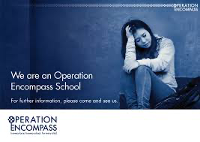
Operation Encompass
Our school is part of Operation Encompass, which is a national scheme that operates jointly between schools and police forces.
Operation Encompass is the reporting to schools, prior to the start of the next school day, when a child or young person has been arrested or has been exposed to domestic abuse.
As a school, we have ensured that a member of our staff, (Designated Safeguarding Lead – Miss Drinkwater), has been trained in the Operation Encompass procedures, allowing us to then use the information that has been shared, in confidence, to support the child/ren in our care.
The Domestic Abuse Act 2021 identifies children who experience domestic abuse as victims of domestic abuse in their own right.
We are keen to offer the best support possible to all our pupils, and we believe this will be extremely beneficial for all those involved.
Operation Endeavour
The purpose of Operation Endeavour is "To safeguard children and young people who are at risk of harm from going missing by ensuring appropriate services are made aware of an incident at the earliest possible opportunity".
Similarly to Operation Encompass, the school will receive information directly from the police about children who are missing.
Vaping
What are vapes and e-cigarettes?
Electronic cigarettes (e-cigarettes)/vapes are battery-powered devices that come in many forms. They all heat liquids, called e-liquids, into an aerosol that users breathe in. They may contain nicotine, flavourings and a range of harmful and toxic chemicals. Many e-liquids come in flavours that are attractive to young people, such as mango, lime and mint. The e-cigarette heat may also produce toxic substances.
They are also known as e-cigs, electronic nicotine delivery systems (ENDS), electronic non-nicotine delivery systems (ENNDS), alternative nicotine delivery systems (ANDS), personal vaporisers, e-hookahs, mods, vape pens, vapes and juuls (pronounced ‘jewels’).
Using e-cigarettes is often called ‘vaping’.
What are the health risks of vaping ?
Most e-cigarettes/vapes contain nicotine, which is highly addictive, especially for teens. Vapes, E-cigarettes and e-cigarette liquids may contain nicotine, even if they have been labelled ‘nicotine free’. One e-liquid pod can contain as much nicotine as a packet of cigarettes.
Nicotine exposure during the teenage years can harm brain development, which continues until about age 25. It can impact learning, memory and attention, and increase the risk of future addiction to other drugs. Young people who use e-cigarettes may be more likely to go on to use regular cigarettes.
E-liquids can poison children and adults through swallowing or skin contact. Symptoms of nicotine poisoning include sweating, dizziness, vomiting and increased heart rate.
E-liquids can also be a danger to young children if inhaled, swallowed, or spilt on the skin. A young child can die from very small amounts of nicotine. The effects of nicotine poisoning can come on very quickly. If you think your child may have been exposed to nicotine, you should seek medical attention or call an ambulance immediately.
While scientists are still learning about the short and long-term health effects of using e-cigarettes, a recent outbreak of lung disease and deaths related to e-cigarette use in the United States demonstrates that e-cigarette aerosols can be harmful to the lungs. In the short term, using e-cigarettes may cause breathing difficulties and coughing. Many e-cigarettes contain known carcinogens and inhaling cancer causing chemicals increases the risk of cancers. In the longer term, e-cigarette use also increases the risk of heart disease. E-cigarettes can also be modified to deliver marijuana and other harmful substances that have been linked to lung disease.
Defective e-cigarette batteries have caused some fires and explosions, which expose the user to the risk of serious injury and burns.
Search and Confiscation
The Academy has a search and confiscation policy in place. The Academy will utilise the policy to prevent any banned items, including vapes and E-Cigarettes from being present on the school grounds. The Academy will utilise non-invasive methods of searching for pupils. For example, the use of a metal detecting wand is deemed the most appropriate method to identify potential banned items.
Drugs and Alcohol
Young people by their nature experiment throughout their youth with various things. Some young people use drugs and alcohol and experiment with this. It is important as adults that we are aware of this and are able to support the children and young people in our care.
Further advice and support can be accessed on the website below. A helpful parental advice booklet is also available in our documents section below.
Useful Websites :
https://www.youngminds.org.uk/parent/parents-a-z-mental-health-guide/drugs-and-alcohol/
https://www.talktofrank.com/get-help/concerned-about-a-child
Useful Documents
Here you will find a collection of useful documents to help your understanding and implementation of safeguarding measures.
Useful Websites
Here you will find links to several websites, videos, and documents which provide advice and support to help you keep your children safe.
- Get Safe Online
- Childline
- PlayStation safety
- NSPCC
- Think You Know
- Calm Zone – Childline
- Young Minds
- Child and Adolescent Mental Health Services (CAMHS)
- DfE Keeping Children Safe in Education
- Stop It Now! UK and Ireland | Preventing child sexual abuse
- Stop It Now | Stop It Now
- #AskTheAwkward - help to talk with your children about online relationships (thinkuknow.co.uk)
The UK Government has launched a new advice and support site to help keep children safe from sexual abuse. The site includes advice for parents and carers on spotting the signs of sexual abuse and speaking to your child about relationships and safety. It also signposts sources of further support for children, adults and professionals, including the NSPCC helpline and Childline.
Visit the website: Stop abuse together


